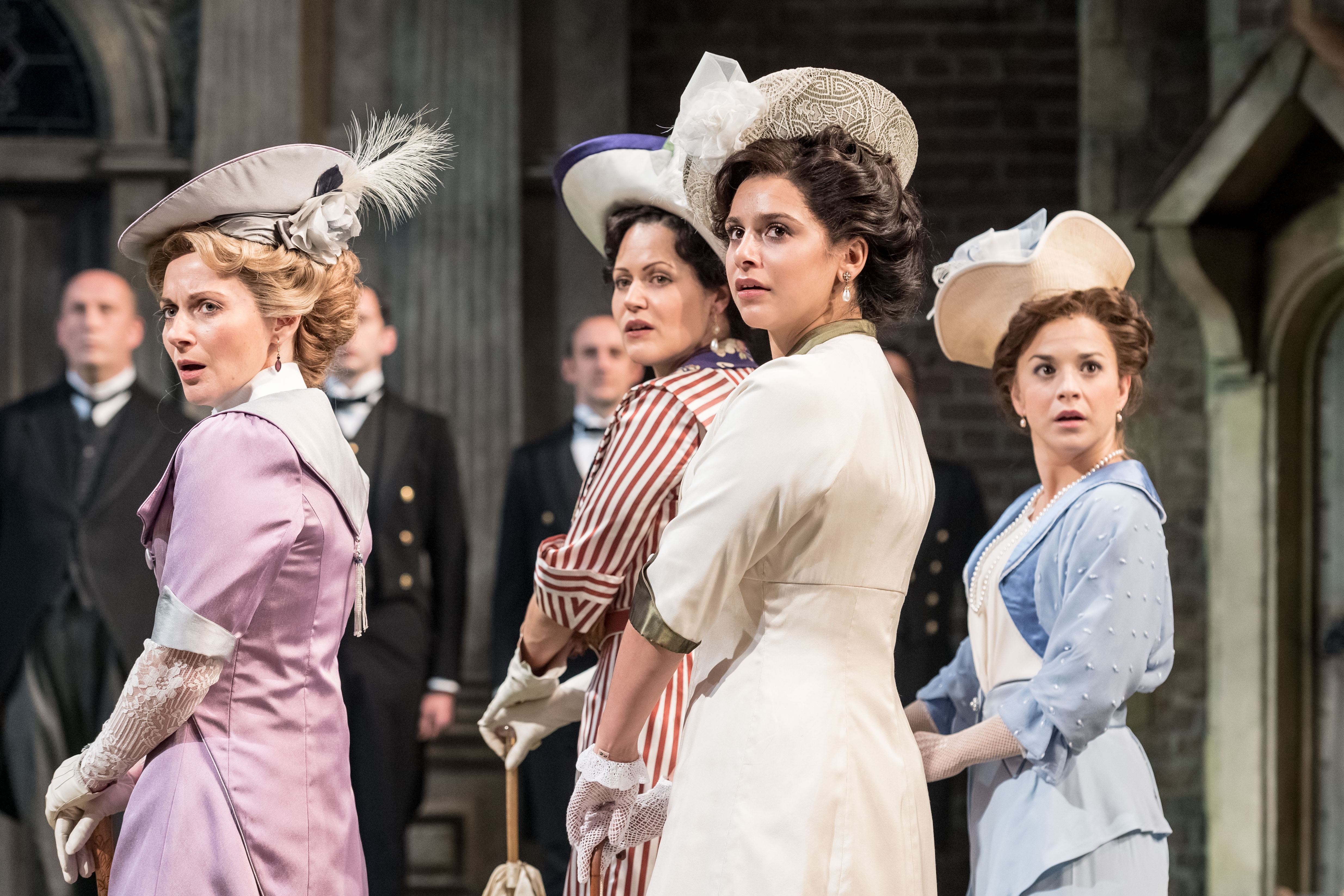When the Royal Shakespeare Company’s pairing of Love’s Labour’s Lost and Much Ado About Nothing (also known as Love’s Labour’s Won) arrives at Manchester Opera House, director Christopher Luscombe is hopeful that not only will there be a repeat of the Chichester Festival success but also his directorial triumph at the same venue recently with the rather different Rocky Horror Show.
“I’ve loved having The Rocky Horror Show as such a big part of my life for the last ten years. But these Shakespeare two plays, I have to say, are very close to my heart, which is why I’m very happy to return to them. Of course, they couldn’t be more different in some ways, although in others it’s quite similar.
“You’re telling a very exciting story in a very different literary style, but I like to impress on people that both of these Shakespeare plays are actually very, very funny and very accessible and entertaining for a general audience,” he says of the double bill, set either side of the First World War with both shows featuring the same company of actors.
Love’s Labour’s Lost conjures up the carefree elegance of a pre-war Edwardian summer just before the outbreak of the The Great War and, at the end, the two lovers, Berowne and Rosaline, are separated. At the beginning of Much Ado About Nothing, two sparring lovers, Benedick and Beatrice, meet again after a long absence in a post-war world which has changed forever, with the Roaring Twenties just around the corner.
“For this short tour, we’ve subtitled Much Ado About Nothing as Love’s Labour’s Won because the purpose of this double is, at least in part, to explore the idea that Shakespeare did write the two plays as a pair, which is quite possible,” says Luscombe. “They do have a lot in common and one play does seem to lead on very naturally from the other. So we wanted to point that up to an audience, although I was also aware that Much Ado About Nothing is a set text this year, so I wanted to make sure a younger audience knew that was what we were doing as it’s a great opportunity to see the play live as well as reading it in a classroom.
 “It was actually the artistic director of the RSC Greg Doran’s idea to set the plays either side of the First World War because the first production was in the centenary year. I knew the plays quite well, having been in them with the RSC in the past, so once I’d heard that it seemed to fit so neatly then I couldn’t really see them any other way. It’s quite common to set Love’s Labour’s Lost just before the First World War, and in fact I’d been in just such a production, because it’s about a perfect world shattered by a cataclysmic event at the end of the play. So it does work set among the leisured classes in a golden summer. But I’d never heard of Much Ado About Nothing being set just after the war and, as it’s a play that’s done a lot, it appealed to have a new take on it. Setting it in the winter just after the war gives it a whole other resonance and I think the cast felt invigorated by that, it gave the play a new lease of life for them.”
“It was actually the artistic director of the RSC Greg Doran’s idea to set the plays either side of the First World War because the first production was in the centenary year. I knew the plays quite well, having been in them with the RSC in the past, so once I’d heard that it seemed to fit so neatly then I couldn’t really see them any other way. It’s quite common to set Love’s Labour’s Lost just before the First World War, and in fact I’d been in just such a production, because it’s about a perfect world shattered by a cataclysmic event at the end of the play. So it does work set among the leisured classes in a golden summer. But I’d never heard of Much Ado About Nothing being set just after the war and, as it’s a play that’s done a lot, it appealed to have a new take on it. Setting it in the winter just after the war gives it a whole other resonance and I think the cast felt invigorated by that, it gave the play a new lease of life for them.”
He adds: “But, importantly, it does suit the play incredibly well because the characters often behave in a very outlandish way and I think that for a lot of people coming back from the trenches, real life and civilian life was very hard to adjust to. So psychologically it seems to fit and, of course, it’s very neat because of the idea of the two plays mirroring each other. It also lent itself to a dazzling design by Simon Higlett and glorious music by Nigel Hess.”
As well as the RSC double, Luscombe is currently re-casting the surprise West End hit Nell Gwynn prior to its national tour, opening at The Lowry in Salford on March 1, 2016. “That was originally going to be just a very short run at The Globe but it just took off and that’s been very thrilling, especially working with a young writer called Jessica Swale.”
The new musical version of Travels With My Aunt with music and lyrics by George Stiles and Anthony Drewe (of Wind In The Willows and Mary Poppins acclaim) that Luscombe directed this summer is unlikely to tour, however, at least in the near future.
“I’m very lucky because I do a range of stuff and if it’s something that feels different and fresh I jump at it. I’ve been very lucky just to work with really good writing and I don’t mind it being in different genres. So I’m very happy to do as much of a range as I can and in fact these two Shakespeares have such a range within them. A lot of Much Ado is hilarious but other aspects are very dark and quite sinister.”
Main photo: Love’s Labour’s Lost by Manuel Harlan.
Love’s Labour’s Lost and Much Ado About Nothing are at Manchester Opera House until December 3, 2016. For more information, click here.











